EU referendum: Students debate future of Leave or Remain
- Published
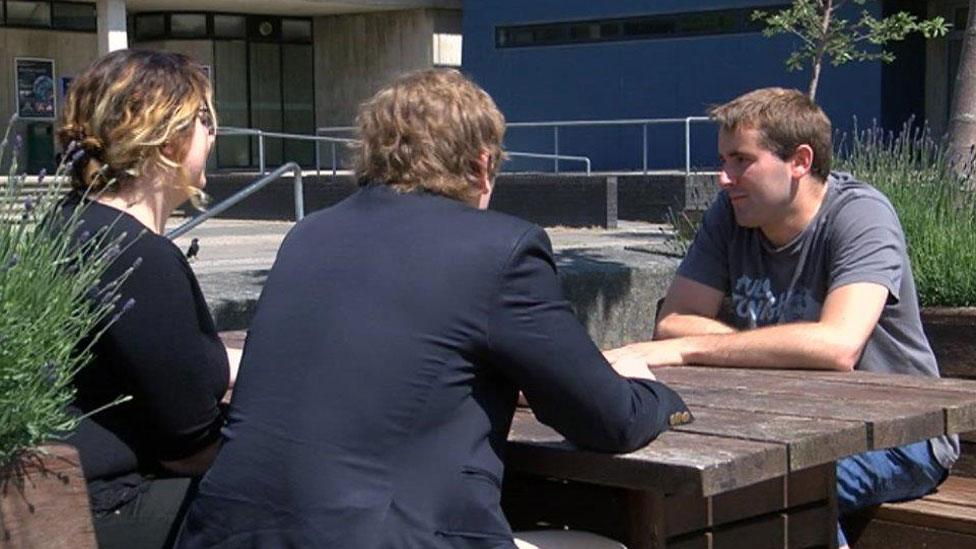
Student campuses have historically been the centre of debates on the big political questions of the day.
And there is no shortage of discussions about the benefits of leaving or remaining in the EU during this referendum campaign.
Issues have included the rights of EU citizens while studying in other European universities.
Also the value of exchange programmes, with Leave campaigners arguing little would change post-Brexit.
What are EU students entitled to?
Students coming to study in Wales from the European Union are entitled to the same grants to cover course fees as students from here.
That means EU and Welsh students are entitled to claim a grant of up to £5,190 a year towards tuition fees from the Welsh Government - although students from the rest of the UK do not qualify.
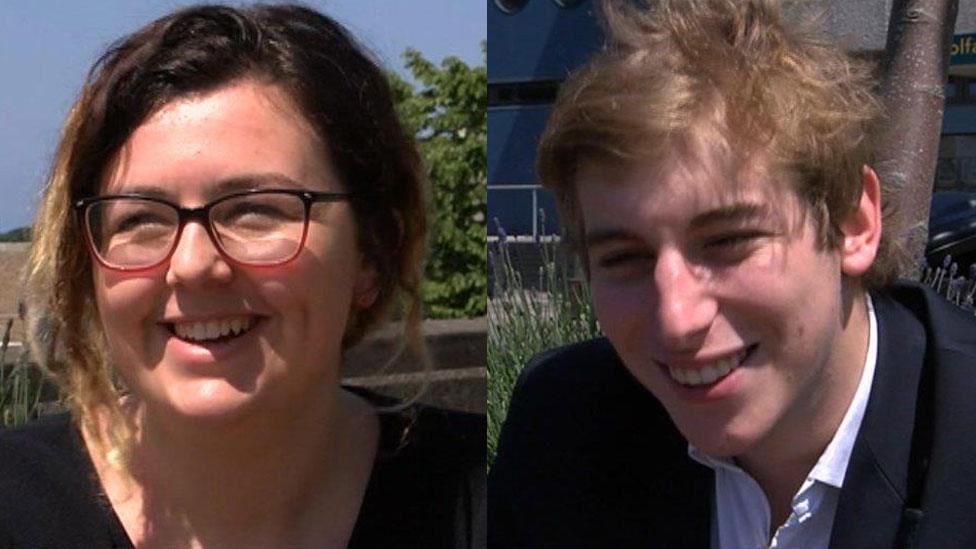
Branwen Miles spent a year on an exchange in France; Jean Francois-Poncet is studying in Aberystwyth
Jean Francois-Poncet, 22, originally from rural France, is studying international and European politics at Aberystwyth University and said equal treatment of EU students was a valuable principle.
"I got the grant from the Welsh Government - the great thing is it allowed me to meet people from different countries and study here," he said.
He added that the EU provides a platform for collaborative research and does not believe it could be replicated.
"The EU facilitates students moving from one university to another, acquiring knowledge and by the scientific community working together, enables it to be more effective."
How many students are there here - and studying in other EU countries?
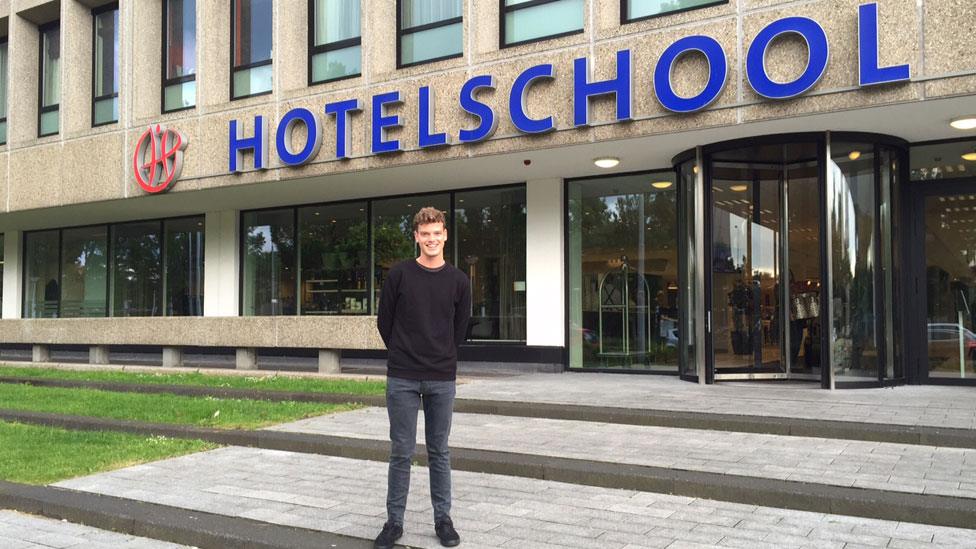
Samuel Sparrenius Waters is studying hotel and business management in the Netherlands
As well as nearly 5,500 EU students in Wales, there are another 18,805 non-EU international students here.
There are no comprehensive figures on the number of Welsh people studying in other EU countries, but they too qualify for financial assistance in the host country.
Samuel Sparrenius Waters is a former pupil at Monmouth Comprehensive School, now studying at a business school in Amsterdam, where he can claim support from the Dutch government.
"I've always been keen into hotel management and specifically into business management as well and I found a university in the Netherlands which was number three in the world for hotel management," he said.
"It was not so much a conscious choice of wanting to go and study in the EU but more a choice of where the best schools were.
"Since we are an EU member I am able to apply for all of those loans and grants that Dutch students get. However, there are a few conditions on them, like I have to work a certain amount of hours per month in order to get a larger loan."
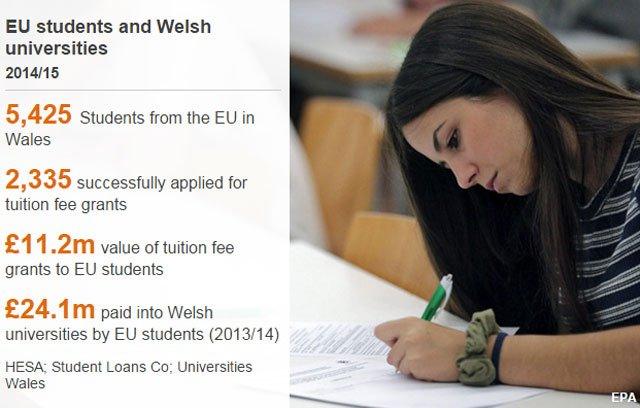
EU support for building links
The Erasmus programme, external is one of the EU's most high profile schemes, giving support to study or train in other member countries and some outside the EU.
Those campaigning to Remain argue this scheme has offered invaluable opportunities to tens of thousands of student building links which lead to social, cultural and economic benefits.
But another Aberystwyth University student, Mark Norton, who is campaigning to Leave, argues these links are not dependent on Britain remaining in the EU and can still happen with countries outside its boundaries like Israel and Iceland.
He also said Welsh universities would still be attractive places to study.
"Britain currently has the highest fees paid by students but students from the European Union come here - that's more of a reflection of the excellence of the universities, not their costs, and I think the same people who study here would still come."

Mark Norton says he does not believe courses will be affected if Britain left the EU
Last year, 80 Erasmus students from elsewhere in the EU studied at Aberystwyth University, while 58 Aberystwyth students went abroad.
They included Branwen Miles, an international politics and French student who spent a year in Strasbourg in France.
"I spent a year in the sciences po [political studies] part of the University of Strasbourg - taking courses in law, politics and history," she said.
"It gave me the opportunity to meet new people, to travel and just to see new things.
"You experience a different culture - a different way of living."
The referendum arguments are generally not focused on the value of these links to students, society and the economy.
Instead, it is a debate about whether these connections would be destroyed by pulling out of the EU or whether they would continue regardless.
- Published24 January 2016
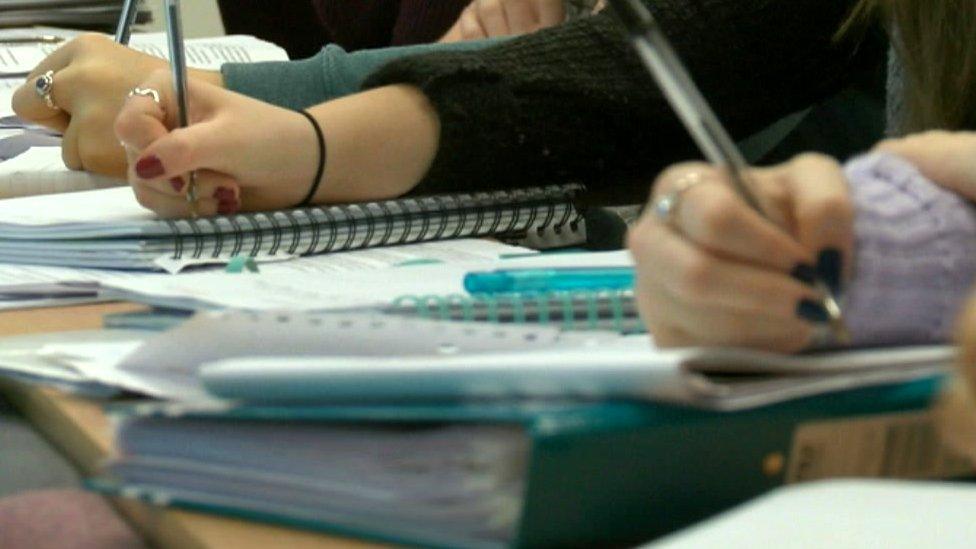
- Published23 April 2016
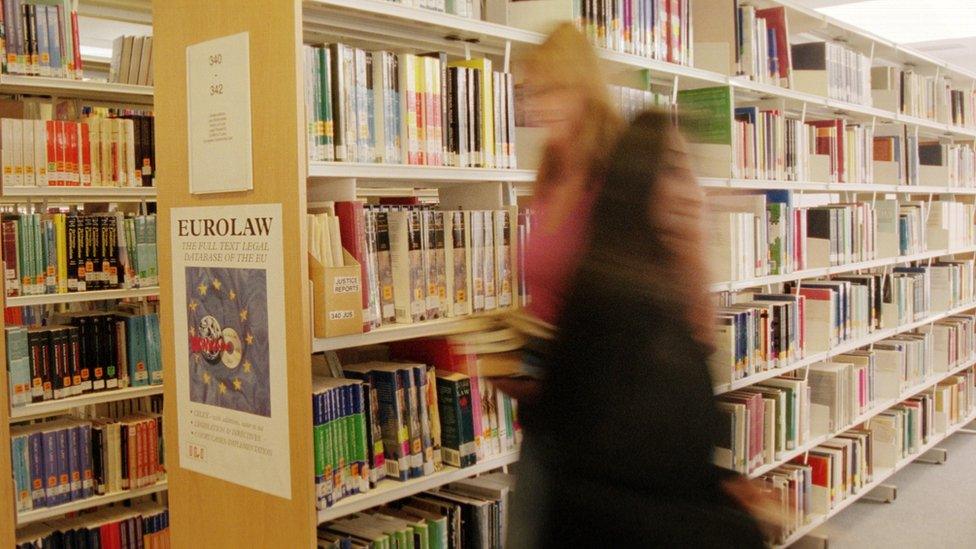
- Published1 June 2016
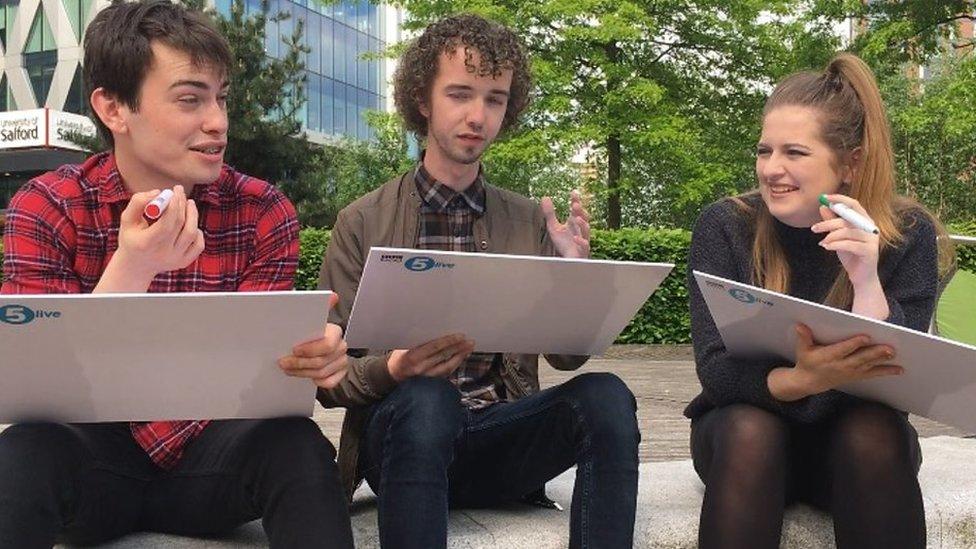
- Published1 March 2016

- Published19 April 2016
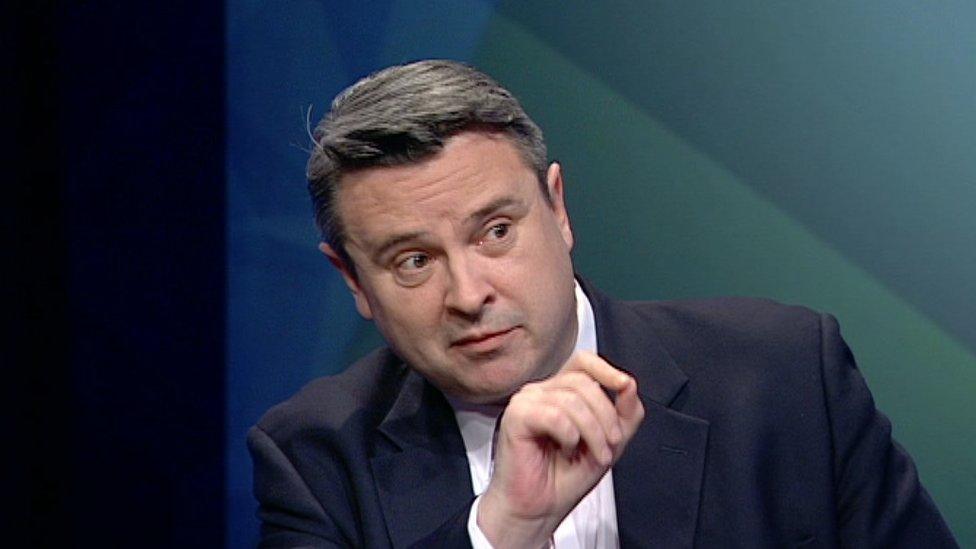
- Published27 January 2016
